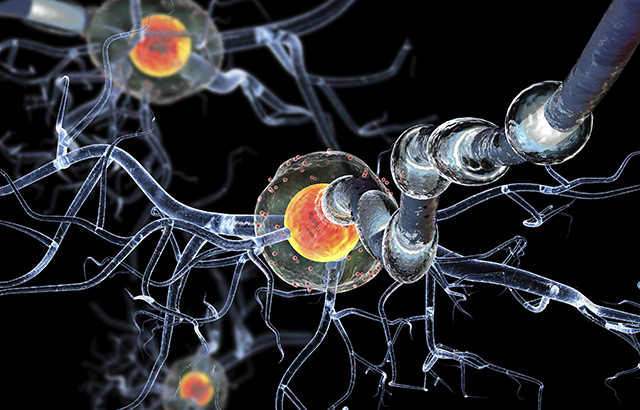New light technology helps identify anti-drug antibodies
Researchers from Queen Mary University of London, including the Blizard Institute, have successfully demonstrated the use of a novel light emitting technology in identifying anti-drug antibodies that can reduce effectiveness of monoclonal antibody therapies.

The team, which included several Queen Mary undergraduate students, tested the new GloBody™ technology against the first humanised monoclonal antibody, alemtuzumab (LEMTRADA), which is used to treat relapsing multiple sclerosis (MS).
They found that they were able to detect anti-alemtuzumab binding antibodies in MS patients, opening up new avenues for the use of the technology to screen patients before treatment.
The results are published in the journal Scientific Reports.
Helping doctors to make treatment decisions
Therapeutic monoclonal antibodies are man-made proteins that look and work like human antibodies found in the immune system. They work by recognising and finding specific proteins on cells and are used to treat a number of conditions including cancer, rheumatoid arthritis, MS and haemophilia.
However, monoclonal antibody therapies can sometimes result in the production of anti-drug antibodies in response, which prevent these therapies from working as effectively, and lead to patients not responding to treatment.
The GloBody™ technology uses a light-producing enzyme, called luciferase, to detect if anti-drug antibodies are present in a patient sample. The light given off by a sample in the assay is proportional to the amount of anti-drug antibodies present.
Dr Angray Kang, Reader in Molecular Cell Biology at Queen Mary and lead author of the study, said: “Now we’ve successfully shown that the technology works, the next step is to develop it for a point-of-care setting, so it can be used to help clinicians to make informed treatment decisions. The potential of the GloBody™ platform isn’t just limited to MS, we expect that the approach will be able to detect anti-drug antibodies produced against a whole range of monoclonal antibody therapies in a range of conditions, and CAR-T cell therapies, which are used in cancer treatment.”
Working with our students

Ioannis Theocharopoulos
A key part of this project was that it provided the opportunity for undergraduate students to become part of a research team.
Queen Mary undergraduate students Ioannis Theocharopoulos and Gauri Saxena (MBBS Medicine and iBSc Neuroscience), and Nisha Aziz (BSc Biomedical Sciences), were all involved in the research and named as co-authors on the paper.
We caught up with Ioannis and Nisha to hear about how this experience has helped them to develop their laboratory skills, understand better the world of academic research and progress onto the next stage of their careers:
More information
- Research paper: ‘GloBody Technology: Detecting Anti-Drug Antibody against VH/VL domains‘. Gauri K. Saxena, Ioannis Theocharopoulos, Nisha Thaslima Aziz, Meleri Jones, Sharmilee Gnanapavan, Gavin Giovannoni, Klaus Schmierer, James A. Garnett, David Baker and Angray S. Kang. Sci Rep 10, 1860 (2020). https://doi.org/10.1038/s41598-020-58041-3.
- Find out more about our Intercalated iBSc Neuroscience programme at the Blizard Institute.
- Find out more about Barts and The London School of Medicine and Dentistry, Queen Mary University of London.